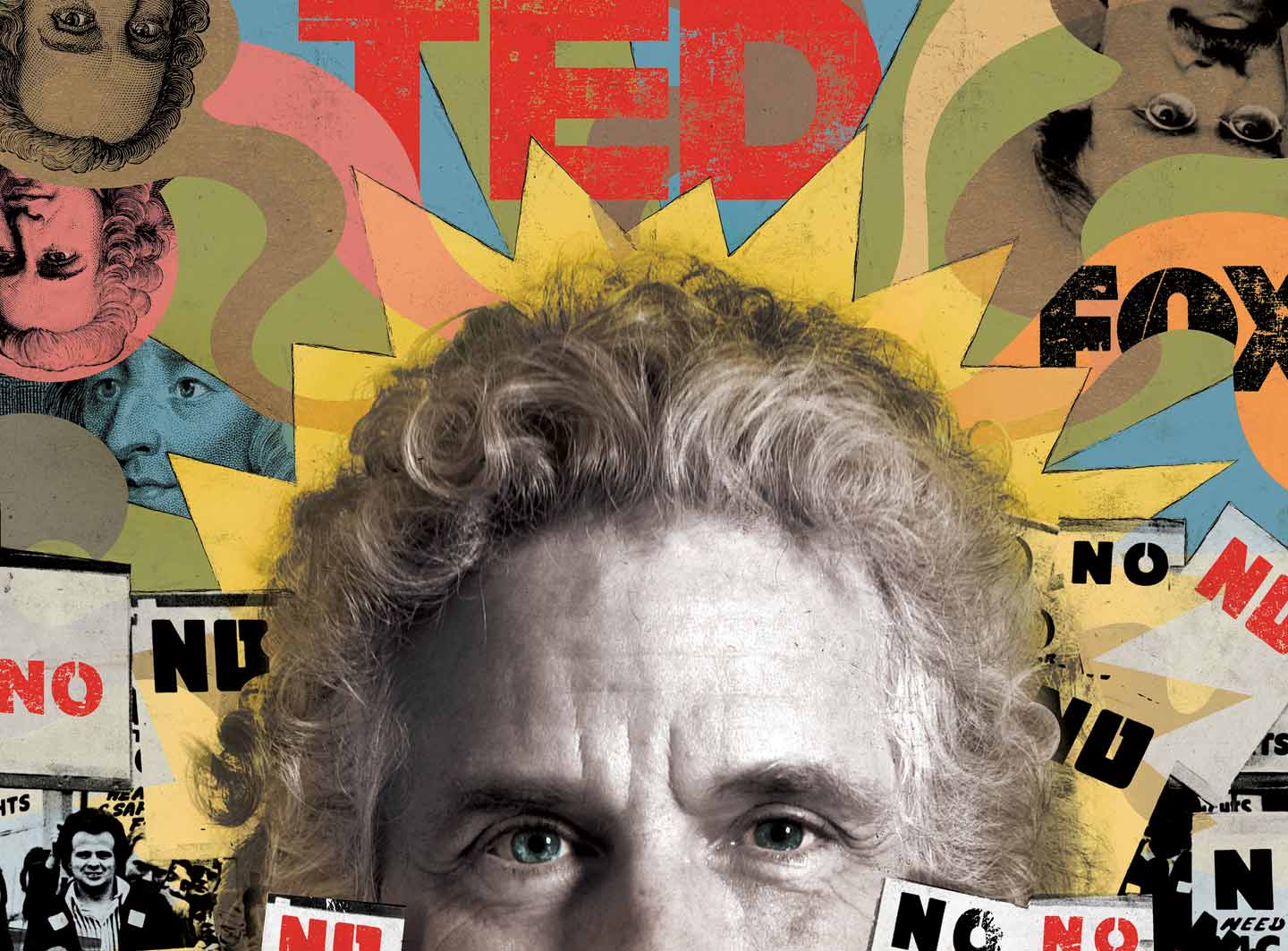by DAVID A. BELL
 ILLUSTRATION/Tim Robinson.
ILLUSTRATION/Tim Robinson.
Is Steven Pinker a modern Enlightenment philosophe? In some ways, the comparison seems reasonable. Like the French philosophes, but unlike most contemporary intellectuals, Pinker writes with enthusiasm about a wide range of human knowledge, from the humanities to the social sciences to physics and biology. He is himself an eminent experimental psychologist. Like the philosophes, but again unlike most contemporary intellectuals, he knows how to appeal to a broad general audience. Enlightenment Now is only the most recent of his best sellers, following on the heels of his defense of evolutionary psychology in The Blank Slate and his argument that we are witnessing a centuries-long decrease of human violence in The Better Angels of Our Nature.
But as Enlightenment Now clearly shows, Steven Pinker is no philosophe. The great writers of the Enlightenment, contrary to the way they are often caricatured, were mostly skeptics at heart. They had a taste for irony, an appreciation of paradox, and took delight in wit. They appreciated complexity, rarely shied away from difficulty, and generally had a deep respect for the learning of those who had preceded them.
Enlightenment Now has few of these qualities. It is a dogmatic book that offers an oversimplified, excessively optimistic vision of human history and a starkly technocratic prescription for the human future. It also gives readers the spectacle of a professor at one of the world’s great universities treating serious thinkers with populist contempt. The genre it most closely resembles, with its breezy style, bite-size chapters, and impressive visuals, is not 18th-century philosophie so much as a genre in which Pinker has had copious experience: the TED Talk (although in this case, judging by the book’s audio version, a TED Talk that lasts 20 hours).
Like a TED Talk, Enlightenment Now is easy to summarize. Despite all the doom and gloom bandied about today, Pinker argues, things are good—in fact, the best they’ve ever been. More specifically, human beings today lead longer, safer, healthier, wealthier, and indeed happier lives than at any point in recorded history, and they do so thanks to the Enlightenment. The nay-saying that is so prevalent in our culture is simply an error, the product of cognitive biases compounded by the influence of foolish intellectuals and ignorant politicians.
It is not entirely clear what Pinker means by “the Enlightenment.” At one point he calls it “a cornucopia of ideas, some of them contradictory,” but at another a coherent “project.” He locates it in the last two-thirds of the 18th century but makes little reference to the actual thinkers and writers of the period. Instead, he points to four “themes” that he highlights in his book’s subtitle: reason, science, humanism, and progress. Some of these terms he defines very broadly: Science is “the refining of reason to understand the world.” But by “humanism” Pinker essentially means a rigid, Richard Dawkins–style atheism. He calls a belief in the existence of an immaterial soul “factually dubious and morally dangerous.”
The Nation for more
